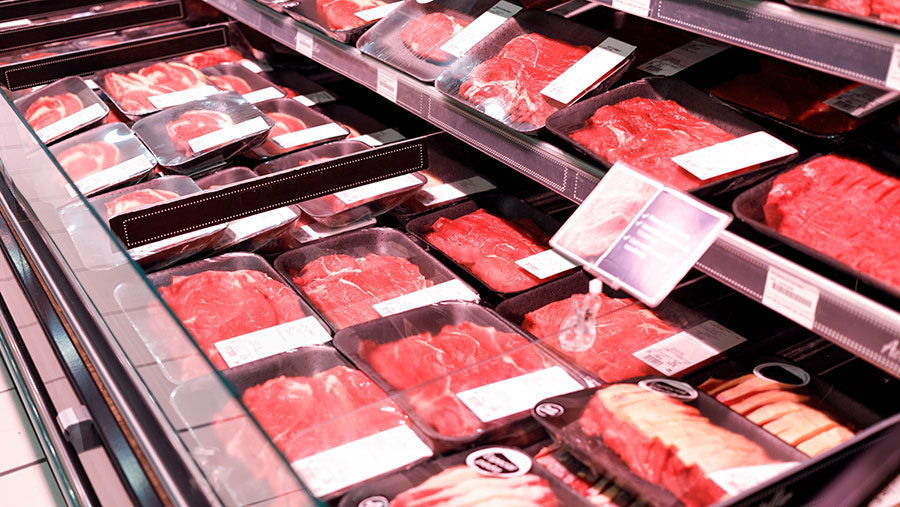Respite for farmers as government underwrites CO2 production
 © Eugeni Photo/Adobe Stock
© Eugeni Photo/Adobe Stock Carbon dioxide supplies should start to flow again soon, bringing much-needed respite for the food industry in general and farmers in particular, who have faced the prospect of a catastrophic build-up of livestock numbers on farms due to factory slowdowns.
The crisis has been caused by the closure of CF Fertilisers’ two ammonium nitrate plants in Cheshire and Teeside due to a surge in the cost of natural gas.
See also: Carbon dioxide shortage sparks food supply-chain fears
These sites produce 60% of the country’s carbon dioxide, which is essential in the food chain for a range of activities, including stunning animals in slaughterhouses and extending the shelf-life of packed meat, cheese, fruit and vegetables.
The fallout from the carbon dioxide shortage was discussed at an emergency summit of food producers on Tuesday (21 September), chaired by the NFU and attended by 33 industry organisations, food companies and retailers.
Deal struck
But at the same time the government was holding emergency talks with American-owned CF Fertilisers and has now struck a short-term deal that will see taxpayer money used to cover some of the company’s operating costs.
This will initially be for three weeks only and will see production of fertiliser and the carbon dioxide by-product resume at the Billingham plant on Teeside in the next few days.
“This agreement will ensure the many critical industries that rely on a stable supply of carbon dioxide have the resources they require to avoid disruption,” said business secretary Kwasi Kwarteng.
But Defra secretary George Eustice insisted it was just “a short-term intervention to provide the space and time for market adjustment”.
Talking to the BBC’s Breakfast programme, he said the payment to CF Fertilisers would help them to “break even” and “bridge the gap” until the markets adjust.
“The reality is, carbon dioxide prices are going to rise – probably quite sharply, several fold – and the food industry recognises that they will need to pay more,” he said.
It is understood that even this short-term fix will cost the taxpayer “tens of millions of pounds”.
‘Meaningful and sustained’
Speaking after the summit, NFU president Minette Batters welcomed the news that an agreement had been reached between government and CF Fertilisers, but said it was important the restart of carbon dioxide production was “meaningful and sustained”.
“Users of carbon dioxide were given little to no warning that supplies were going to be cut off – an indication of market failure in a sector supporting our critical national infrastructure,” she complained.
Mrs Batters added: “The UK food supply chain has so far done a fantastic job keeping our shelves full, but these past few days have highlighted starkly the fragility in the supply chain.
“Food shortages are a clear and present danger which ministers must work urgently with the whole supply chain to avoid.”
Food and Drink Federation chief executive Ian Wright was confident that, if carbon dioxide production could restart at appropriate scale before the end of the week, “this should be enough to ensure pig and poultry production can continue at close to normal”.
“There will be some shortages, but these will not be as bad as previously feared,” he said.
He also urged government to work with the industry “to build resilience into the production of carbon dioxide to protect our food supply chain”.
